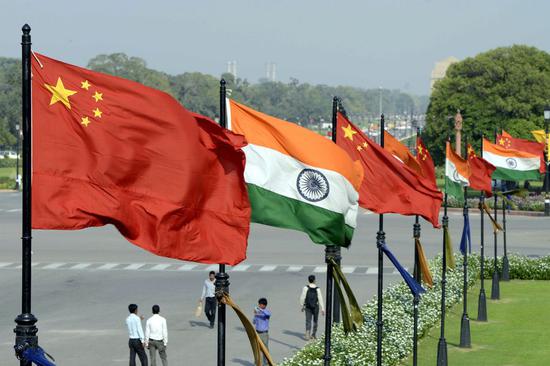China and India strengthen ties through dialogue, mutual trust
Beijing and New Delhi expressed their readiness to build political mutual trust, resume dialogue mechanisms, and enhance cooperation in trade and culture on Wednesday, as senior officials met in Beijing to discuss boundary issues. Analysts noted that the move has significant potential to strengthen bilateral ties.
Vice-President Han Zheng met with India's Special Representative and National Security Adviser Ajit Doval. Doval was in Beijing to co-chair the 23rd meeting of the Special Representatives for the China-India Boundary Question with Wang Yi, who serves as China's special representative on the China-India boundary question and the director of the Office of the Central Commission for Foreign Affairs.
This bilateral mechanism, initiated in 2003, aims to comprehensively address the border dispute between the two countries. Over the years, the mechanism had convened 22 meetings, with the most recent one held in India in 2019.
In October, the leaders of China and India met in Kazan, Russia, where they agreed to make good use of the mechanism, maintain peace and tranquility in the border areas, and work toward a fair and reasonable settlement of the border issue.
During the talks in Beijing, Han emphasized that China and India, as ancient civilizations and emerging major powers, carry "global influence and strategic significance" through their commitment to independence, unity, and cooperation.
As 2025 marks the 75th anniversary of the establishment of diplomatic relations between China and India, Han urged both nations to maintain high-level exchanges, foster political mutual trust, and gradually resume institutional dialogues and exchanges and cooperation across various sectors to stabilize bilateral ties.
Doval expressed India's willingness to enhance strategic communication and expand mutually beneficial cooperation with China, providing new momentum for the relationship.
Wang, during the meeting, called on China and India to channel their resources into development and revitalization while placing the border issue in an appropriate position within their overall bilateral ties.
In response, Doval said India is committed to maintaining pragmatic communication with China to create conditions for the eventual resolution of the border issue.
The two representatives reached a six-point consensus, including a commitment to seek a fair, reasonable, and mutually acceptable solution to the border issue based on the political guidelines established in 2005. Both sides agreed to refine border area control regulations and strengthen confidence-building measures to ensure sustainable peace and tranquility in the border regions.
Furthermore, they pledged to enhance cross-border exchanges and cooperation, including resuming Indian pilgrimages to China's Xizang autonomous region, advancing cross-border river cooperation, and promoting border trade through the Nathu La Pass.
Since the border conflict in 2020, Beijing and New Delhi have held 21 rounds of China-India Corps Commander Level Meetings and 32 meetings of the Working Mechanism for Consultation and Coordination on China-India Border Affairs.
Wang Shida, a researcher at the Institute for South Asian Studies at the China Institutes of Contemporary International Relations, said the detente between China and India serves the interests of both nations.
"With each nation home to over 1.4 billion people, development should be the greatest common denominator between the two neighbors," Wang said. He added that the resumption of talks is crucial for unlocking the potential for cooperation across a wide range of fields.
zhaojia@chinadaily.com.cn

